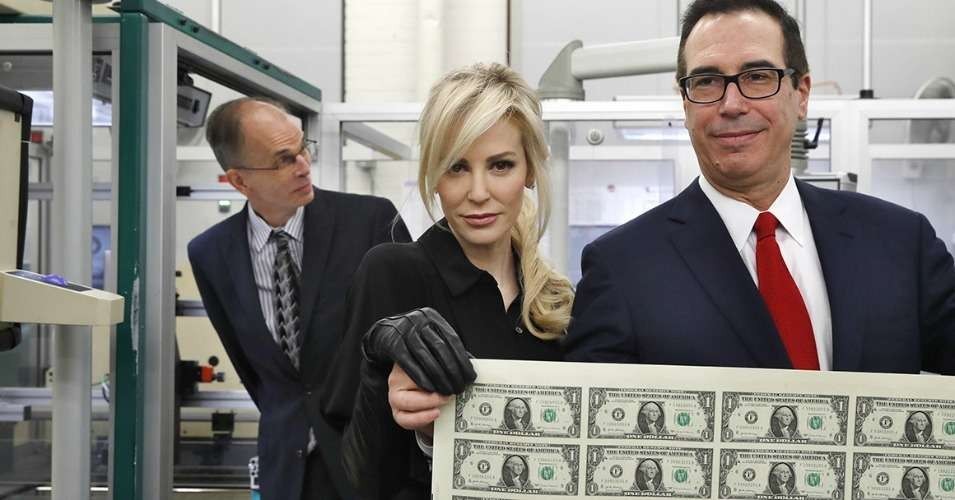A former classmate from Yale recently told me “monogamy is kind of outdated” and not good for society. So I asked her what her background is and if she planned to marry.
She said she comes from an affluent family and works at a well-known technology company. Yes, she personally intends to have a monogamous marriage — but quickly added that marriage shouldn’t have to be for everyone.
She was raised by a traditional family. She planned on having a traditional family. But she maintained that traditional families are old-fashioned and society should “evolve” beyond them.
What could explain this?
NORAD Launches US Fighter Jets as Russian Military Aircraft Enter American Air Defense Identification Zone
Virginia Dems mandate Jan. 6 be taught as ‘violent insurrection,’ ban election fraud claims in schools
Trump Turns Up Heat on Republicans, Pressures Them to Pass SAVE Act: ‘Country Defining Fight for the Soul of Our Nation!’
Pentagon policy chief grilled as Dem claims Trump broke promise about going to war with Iran
Georgia sheriff arrested on DUI charge after blood alcohol content was allegedly almost triple legal limit
Small plane crashes into Phoenix home minutes after takeoff, injuring 3
‘Third-party’ auditor investigating Minnesota fraud received millions in state Medicaid funds
Macron vows nuclear arsenal boost as Europe turns to nukes amid rising global threats
‘Under siege’: Inside the growing radical Islam threat critics say is hiding in plain sight in deep red Texas
Walz-Ellison administration ‘enabled’ Minnesota’s fraud scandal: Guy Benson
NYC Dept of Education employee arrested, charged with murder of Bronx father
Savannah Guthrie returns to ‘Today’ show studio for first time since mother went missing
Iran widens regional war with first strike into Azerbaijan
5 House Oversight Committee Republicans Join with Democrats to Subpoena Pam Bondi in Epstein Probe
As Jasmine Crockett Concedes Texas Senate Primary, Attention Focuses on Radical Dem Who Beat Her
In the past, upper-class Americans used to display their social status with luxury goods. Today, they do it with luxury beliefs.
People care a lot about social status. In fact, research indicates that respect and admiration from our peers are even more important than money for our sense of well-being.
We feel pressure to display our status in new ways. This is why fashionable clothing always changes. But as trendy clothes and other products become more accessible and affordable, there is increasingly less status attached to luxury goods.
The upper classes have found a clever solution to this problem: luxury beliefs. These are ideas and opinions that confer status on the rich at very little cost, while taking a toll on the lower class.
One example of luxury belief is that all family structures are equal. This is not true. Evidence is clear that families with two married parents are the most beneficial for young children. And yet, affluent, educated people raised by two married parents are more likely than others to believe monogamy is outdated, marriage is a sham or that all families are the same.
Relaxed attitudes about marriage trickle down to the working class and the poor. In the 1960s, marriage rates between upper-class and lower-class Americans were nearly identical. But during this time, affluent Americans loosened social norms, expressing skepticism about marriage and monogamy.
NORAD Launches US Fighter Jets as Russian Military Aircraft Enter American Air Defense Identification Zone
Virginia Dems mandate Jan. 6 be taught as ‘violent insurrection,’ ban election fraud claims in schools
Trump Turns Up Heat on Republicans, Pressures Them to Pass SAVE Act: ‘Country Defining Fight for the Soul of Our Nation!’
Pentagon policy chief grilled as Dem claims Trump broke promise about going to war with Iran
Georgia sheriff arrested on DUI charge after blood alcohol content was allegedly almost triple legal limit
Small plane crashes into Phoenix home minutes after takeoff, injuring 3
‘Third-party’ auditor investigating Minnesota fraud received millions in state Medicaid funds
Macron vows nuclear arsenal boost as Europe turns to nukes amid rising global threats
‘Under siege’: Inside the growing radical Islam threat critics say is hiding in plain sight in deep red Texas
Walz-Ellison administration ‘enabled’ Minnesota’s fraud scandal: Guy Benson
NYC Dept of Education employee arrested, charged with murder of Bronx father
Savannah Guthrie returns to ‘Today’ show studio for first time since mother went missing
Iran widens regional war with first strike into Azerbaijan
5 House Oversight Committee Republicans Join with Democrats to Subpoena Pam Bondi in Epstein Probe
As Jasmine Crockett Concedes Texas Senate Primary, Attention Focuses on Radical Dem Who Beat Her
This luxury belief contributed to the erosion of the family. Today, the marriage rates of affluent Americans are nearly the same as they were in the 1960s. But working-class people are far less likely to get married. Furthermore, out-of-wedlock birthrates are more than 10 times higher than they were in 1960, mostly among the poor and working class. Affluent people seldom have kids out of wedlock but are more likely than others to express the luxury belief that doing so is of no consequence.
Another luxury belief is that religion is irrational or harmful. Members of the upper class are most likely to be atheists or non-religious. But they have the resources and access to thrive without the unifying social edifice of religion.
Places of worship are often essential for the social fabric of poor communities. Denigrating the importance of religion harms the poor. While affluent people often find meaning in their work, most Americans do not have the luxury of a “profession.” They have jobs. They clock in, they clock out. Without a family or community to care for, such a job can feel meaningless.
Then there’s the luxury belief that individual decisions don’t matter much compared to random social forces, including luck. This belief is more common among many of my peers at Yale and Cambridge than the kids I grew up with in foster care or the women and men I served with in the military. The key message is that the outcomes of your life are beyond your control. This idea works to the benefit of the upper class and harms ordinary people.
NORAD Launches US Fighter Jets as Russian Military Aircraft Enter American Air Defense Identification Zone
Virginia Dems mandate Jan. 6 be taught as ‘violent insurrection,’ ban election fraud claims in schools
Trump Turns Up Heat on Republicans, Pressures Them to Pass SAVE Act: ‘Country Defining Fight for the Soul of Our Nation!’
Pentagon policy chief grilled as Dem claims Trump broke promise about going to war with Iran
Georgia sheriff arrested on DUI charge after blood alcohol content was allegedly almost triple legal limit
Small plane crashes into Phoenix home minutes after takeoff, injuring 3
‘Third-party’ auditor investigating Minnesota fraud received millions in state Medicaid funds
Macron vows nuclear arsenal boost as Europe turns to nukes amid rising global threats
‘Under siege’: Inside the growing radical Islam threat critics say is hiding in plain sight in deep red Texas
Walz-Ellison administration ‘enabled’ Minnesota’s fraud scandal: Guy Benson
NYC Dept of Education employee arrested, charged with murder of Bronx father
Savannah Guthrie returns to ‘Today’ show studio for first time since mother went missing
Iran widens regional war with first strike into Azerbaijan
5 House Oversight Committee Republicans Join with Democrats to Subpoena Pam Bondi in Epstein Probe
As Jasmine Crockett Concedes Texas Senate Primary, Attention Focuses on Radical Dem Who Beat Her
It is common to see students at prestigious universities work ceaselessly and then downplay the importance of tenacity. They perform an “aw, shucks” routine to suggest they just got lucky rather than accept credit for their efforts. This message is damaging. If disadvantaged people believe random chance is the key factor for success, they will be less likely to strive.
White privilege is the luxury belief that took me the longest to understand, because I grew up around poor whites. Often members of the upper-class claim that racial disparities stem from inherent advantages held by whites. Yet Asian Americans are more educated, have higher earnings and live longer than whites. Affluent whites are the most enthusiastic about the idea of white privilege, yet they are the least likely to incur any costs for promoting that belief. Rather, they raise their social standing by talking about their privilege.
In other words, upper-class whites gain status by talking about their high status. When laws are enacted to combat white privilege, it won’t be the privileged whites who are harmed. Poor whites will bear the brunt.
It’s possible that affluent whites don’t always agree with their own luxury beliefs, or at least have doubts. Maybe they don’t like the ideological fur coat they’re wearing. But if their peers punish them for not sporting it all over town, they will never leave the house without it again.
Because, like with diamond rings or designer clothes of old, upper-class people don a luxury belief to separate themselves from the lower class. These beliefs, in turn, produce real, tangible consequences for disadvantaged people, further widening the divide. Just as fashionable clothing will soon be outdated, so will today’s fashionable beliefs. In the future, expect the upper class to defame even more values — including ones they hold dear — in their quest to gain top-dog status.
Story cited here.
























